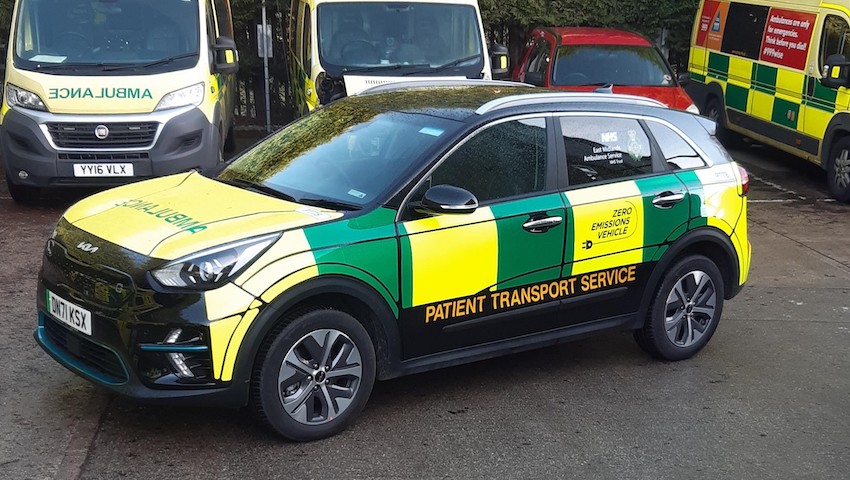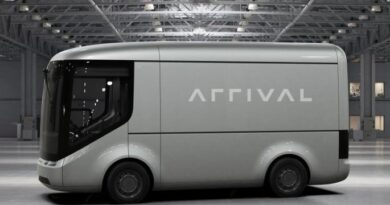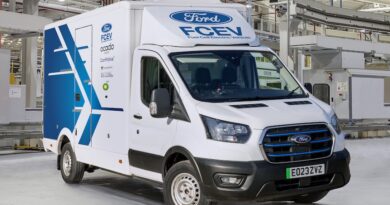East Midlands Ambulance Service goes electric with the Kia e-Niro
The East Midlands Ambulance Service NHS Trust has replaced every one of its non-emergency patient transport cars in Derbyshire with the Kia e-Niro.
EMAS began its search for a suitable electric vehicle for its Derbyshire NEPTS service almost three years ago. The trust tested a variety of different vehicles before making a final decision to implement the Kia e-Niro. EMAS has now taken delivery of 16 of Kia’s best-selling EV for patients in Derbyshire who need non-emergency medical or clinical support to get to and from their healthcare appointments. The move will reduce the trust’s emissions by 96 tonnes of carbon dioxide, equivalent (tCO2e) per year.
Andy Watson, Fleet Assistant General Manager for EMAS, said: “We’re really pleased to have been able to introduce these fully electric, zero-emissions vehicles to our fleet. With these vehicles now fully operational, we are immediately putting them into service as we respond to the needs of our patients.”
Running on pure electric power, EMAS staff will be able to recharge the vehicles at numerous public charging points across the region. All the electric NEPTS vehicles are fitted with satellite navigation as standard, which can also alert the driver to the nearest available charging station when required.
Steve Farnsworth, Assistant Director of Operational Support at EMAS, said: “We are constantly evaluating the electric vehicle offering that is available, which is changing and improving with new products being launched year on year. These vehicles have an excellent range and the manufacturer is very much established in this field of technology.
“The car is capable of up to 282 miles when fully charged and our NEPTS vehicles complete 90 miles per day on average, meaning one charge should last a day without the need to charge again.”
Jenny Revill, Clinical Lead for NEPTS in Derbyshire at EMAS, was one of the first people to take the electric Kia e-Niro out for a spin before they were deployed to stations across the division: “The cars are smooth to drive, have a quiet ride and respond well to different traffic conditions. They are very comfortable for staff, which is important for 12-hour shifts, and the patients that have used them have given positive feedback – especially on getting in and out of the vehicle for those with mobility challenges.
This is because the electric vehicles are slightly larger than our previous cars and this helps patients getting up from the seated position as there is plenty of legroom in the rear. The added feature of heated seats for the winter will be really helpful.”
This latest rollout of electric vehicles at EMAS is part of the organisation’s ongoing commitment to becoming a net zero trust by 2040.
Stacie Scullion, Sustainability, Energy and Compliance Manager at EMAS, said: “Our operational fleet accounts for 65 per cent of the emissions we control directly.
“Changing 16 diesel cars in Derbyshire to electric vehicles will reduce our fleet emissions by 96 tonnes of carbon dioxide equivalent (tCO2e) per year and will have the greatest benefit to reducing our overall climate impact.
“The climate emergency is also a health emergency and these zero emission cars are welcomed at EMAS as we recognise their importance in reducing the negative health impacts caused by air pollution.”






